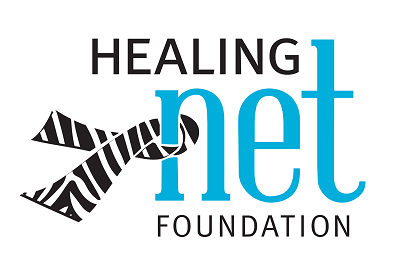Words Can Sometimes Hurt Me
/Whenever my children asked me a random question, they knew the first answer out of my mouth would be, “I bet there is a book for that!” I am a big book worm. I want to recommend books to strangers whenever I’m in a bookstore, but I have learned that I sometimes scare people, so I stop myself from pointing out what I think is a better choice. When my husband Jim was diagnosed with NET cancer in 2004, I found books on living with the uncertainty of cancer, improving your nutrition, and what to ask your physicians. What I did not find was a good guide on talking to one another about the cancer life. (Don’t tell my kids that books failed me in this case.)
Before we had cancer in our lives, I never would have expected a conversation with a well-meaning friend to hurt my heart. As I was hugging a good friend of Jim’s goodbye one day, he leaned in and said, “Take care of my friend. Don’t let anything happen to my buddy.” He meant nothing sinister. I didn’t take it as a threat. I knew he meant he loved Jim and wanted him to be okay. What he didn’t know was this: my heart crushed into a thousand pieces. How could he know that I worried about this above everything else? That I could drop the ball on his care, and he could die. I knew that our circle of family and friends were aware that I was doing what I could, but at the same time I also felt enormous pressure—much of it from within me, but Jim’s parents were also looking to me to take care of everything, and I was working so hard to protect our children.
I broke down in a puddle of tears that day. The simple fact is, I wish he would have leaned in and said, “Karalyn, you are taking such good care of my friend, and I am here if you need me.” (And what if he also said, “I’m sending you on a trip to Hawaii? Lol)
Honestly, these kinds of conversations got me thinking about how what we say to one another in a world with cancer really does make a difference. Even words spoken with love and well meaning can hit a sensitive nerve. We are more sensitive when we are tired and worried and overwhelmed. How does one go about changing the narrative on things that serve no use to the person living with cancer or the ones who care for them?
There is a lot of conversation about appropriate cancer talk. War metaphors are common, like “you will beat this,” “fight,” and “losing their battle.” Sometimes words like “survivor” or “beating cancer” feel good for one person but can mean to another that they or their loved ones somehow failed. Some prefer a message of “living with cancer” and finding a way of making peace with it. Honestly, if a friend asked me to saddle up for battle for their loved one, I would ride at dawn, no questions asked. By the same token, if someone asked me to be sensitive to how we discuss the issues at hand, such as to say, “living with cancer,” I will listen and do my best to be mindful.
If you are the patient or caregiver, you can simply lead with what makes you comfortable. I encourage you to send an email explaining how you are approaching your experience. Everyone wants to be loving and proactive and compassionate, and we can help by taking responsibility to make the tone known. Let friends and family know what dialogues bring you comfort and what metaphors you may be steering away from. Encourage them to ask questions. However you are approaching the conversation or metaphors of cancer, please help one another communicate what works. It is freeing to know you don’t have to worry about a hard phrase that may sting in times of worry. I can say that the NET community is beyond amazing and can have these discussions.
In our home, we did receive a lot of advice and some phrases that didn’t fit with our choices, but we knew everyone loved Jim. The mama bear that I am, I did have a few conversations about protecting my boys from sayings like “you are the man of the house now” or “your dad will fight and beat this.” We chose to accept NET cancer was cohabitating in Jim’s body, no matter how we wished it wasn’t true. We tried to respect its tenacity to camp out. We were always trying to lessen its severity or symptoms, and Jim made peace with this and lived his best life for a long time alongside it.
I hope you have a lovely autumn and take good care. Hey, I know there are great books about leaf peeping and baking apple pies out there!
Karalyn and Jim Leaf Peeping





